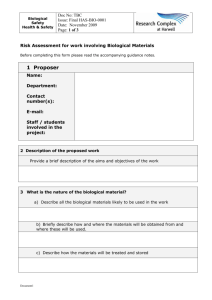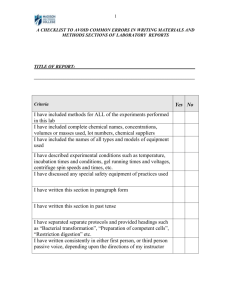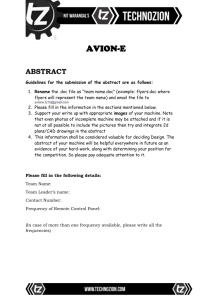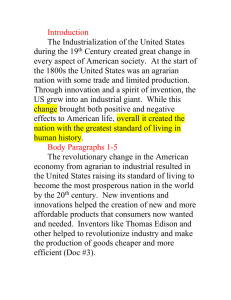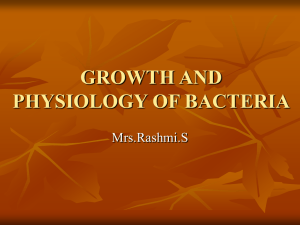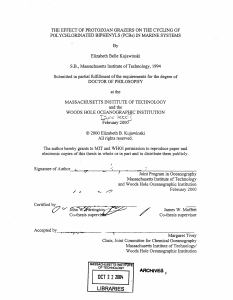Bacterial growth efficiency on different concentrations of natural
advertisement
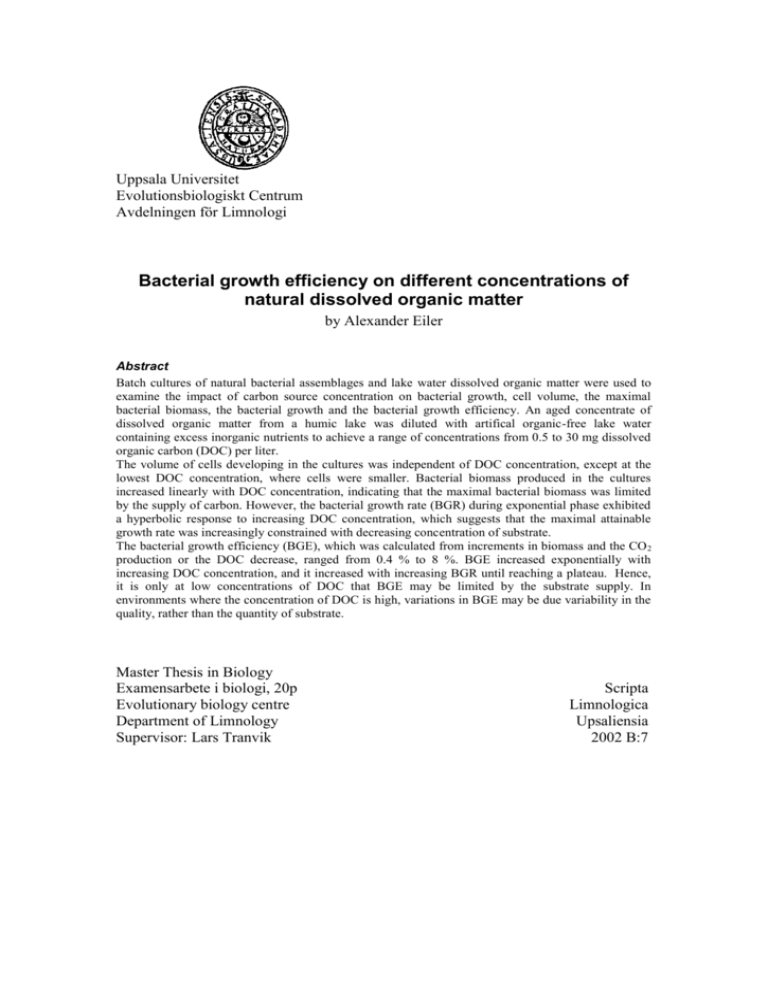
Uppsala Universitet Evolutionsbiologiskt Centrum Avdelningen för Limnologi Bacterial growth efficiency on different concentrations of natural dissolved organic matter by Alexander Eiler Abstract Batch cultures of natural bacterial assemblages and lake water dissolved organic matter were used to examine the impact of carbon source concentration on bacterial growth, cell volume, the maximal bacterial biomass, the bacterial growth and the bacterial growth efficiency. An aged concentrate of dissolved organic matter from a humic lake was diluted with artifical organic-free lake water containing excess inorganic nutrients to achieve a range of concentrations from 0.5 to 30 mg dissolved organic carbon (DOC) per liter. The volume of cells developing in the cultures was independent of DOC concentration, except at the lowest DOC concentration, where cells were smaller. Bacterial biomass produced in the cultures increased linearly with DOC concentration, indicating that the maximal bacterial biomass was limited by the supply of carbon. However, the bacterial growth rate (BGR) during exponential phase exhibited a hyperbolic response to increasing DOC concentration, which suggests that the maximal attainable growth rate was increasingly constrained with decreasing concentration of substrate. The bacterial growth efficiency (BGE), which was calculated from increments in biomass and the CO 2 production or the DOC decrease, ranged from 0.4 % to 8 %. BGE increased exponentially with increasing DOC concentration, and it increased with increasing BGR until reaching a plateau. Hence, it is only at low concentrations of DOC that BGE may be limited by the substrate supply. In environments where the concentration of DOC is high, variations in BGE may be due variability in the quality, rather than the quantity of substrate. Master Thesis in Biology Examensarbete i biologi, 20p Evolutionary biology centre Department of Limnology Supervisor: Lars Tranvik Scripta Limnologica Upsaliensia 2002 B:7
